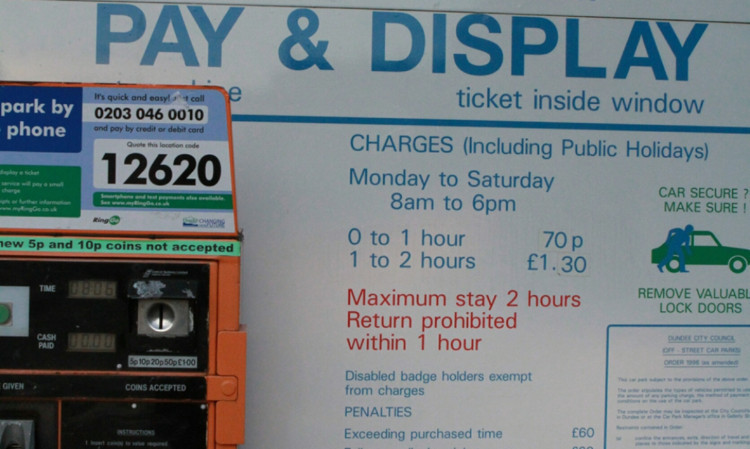Councils have been accused of using parking fees as cash generators after raking in an estimated £80,000 a day from fines and charges.
Perth and Kinross Council saw itsparking income surplus increase by 43% to just over £1 million in 2011-12, while Fife Council made £545,000.
Dundee City Council saw its parking revenue drop by more than half, but still ended up with a £290,000 profit.
At the top of the table was Edinburgh Council, which made a staggering £14m from motorists. Glasgow was second with a surplus income of £6.8m.
The figures, published by the RACFoundation and based on ScottishGovernment data, showed councils made a total of £29m from parking fines and charges after operating and capital costs were removed.
Professor Stephen Glaister, director of the RAC Foundation, said: “For many local authorities, especially in Scotland’s two biggest cities, parking charges are big generators of cash. Not all authorities make big sums, but added together the surpluses dwarf the deficits. Faced with these figures, drivers will understandably want to know why parking charges are set at the level they are and what happens to the ‘profit’. We would hope that the money is being ploughed back into local roads.”
Perth and Kinross Council said money generated was invested in parking schemes.
A council spokesman said: “All surplus money generated from parking in Perth and Kinross is put into a reserve that pays for improvements to parking infrastructure.
“We have a five-year investment plan thatoutlines where, and when, improvements are to be made across our parking provision.
“With regard to these figures, thereason there will have been larger surplus in 2011-12 is that during that particular year the council will not have spent as much on parking infrastructure improvements as in the previous 12 months.”
A Dundee City Council spokesman said: “Any surplus is put back into the council’s transportation budget and used for other projects, for example sustainable transport initiatives.”
Fife revenues service manager LesRobertson said: “The income generated from parking charges and penalties assists with the provision of all council services, including those related to transportation.”
In Angus, where shoppers have theluxury of free parking, there was a deficit of £153,000.
An Angus Council spokeswoman said: “Off-street car parking in Angus is free in council owned car parks.
“Although all Angus Council car parks are free of charge, all have time limits and regulations that have to be complied with.
“Anyone found contravening the regulations runs the risk of incurring a fixed penalty notice.”
Institute of Advanced Motorists (IAM) director of policy and research Neil Greig said: “As far as the IAM are concerned, a well-run council parking department should cover its costs and make enough to allow upgrading of customers facilities such as new ticket machines, more staff in multi-storeys and of course investment in new car parks.
“Anything beyond that is taking money from visitors that could have been spent in city centre shops and businesses. Councils must stop seeing parking as a source of revenue and more as a tool to attract much needed footfall into our high streets.“Transparency is the key, with councils having to be much more open about where the money goes and justifying the millions they are making.”Perth and Kinross Council saw its parking income surplus increase by 43% to just over £1 million in 2011-12, while Fife Council made £545,000.
